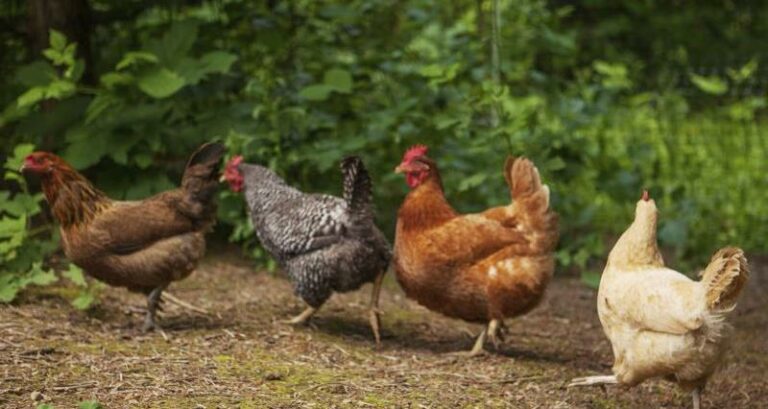A new EU-funded project has been launched, which aims to help organic pig and poultry farms achieve the goal of using100% organic local and regional feed. Research partners from 11 countries throughout Europe visited the Organic Research Centre in Berkshire to mark the start of the project.
The project called OK-Net EcoFeed, was triggered because of concerns an EU derogation would be ended, which currently allows the use of 5% non-organic protein feed for pork and poultry.
An important element of organic farming is that animals are fed with feed produced at or near the farm but this is difficult to achieve in large parts of Europe. Currently feed for pigs and poultry is imported from regions far away from where animals are raised. Very often the market is reliant on imports from outside Europe (for example, China, India, Argentina, and the Ukraine), where unexpected yield losses can make it difficult for organic farmers to obtain animal feed.
Organic farming has a long tradition in Europe. In the last two decades, the market for organic food has shown vigorous growth in most parts of Europe and this growth is still accelerating. However, organic pig and poultry farmers frequently suffer from difficulties in sourcing protein feed of organic quality.
This growth is particularly challenging for organic pig and poultry producers, who, to comply with EU regulations as well as maintaining consumer confidence, will in future need to source organic feed that is produced at or near the producers farm. The aim of OK-Net EcoFeed is to help farmers and stakeholders achieve 100% use of organic feed at local and regional level.
Dr Bram Moeskops, OK-Net EcoFeed project coordinator said: “Increasing the availability of organic local and regional feed will further improve the sustainability of organic agriculture. OK-Net EcoFeed will work with farmers, breeders and the organic feed industry to make practical solutions available to improve the use of organic and regional feed.”
Dr Bruce Pearce, deputy director at the Organic Research Centre and one of the project partners said: “As part of this project, the UK’s Organic Research Centre will work with 11 innovation groups across Europe to facilitate knowledge exchange among farmers, stakeholders, researchers and advisors. The innovation groups are amongst the most pioneering in organic pig and poultry production and we are delighted to be at the sharp-end of this research to ensure that solutions from the project work in the ‘real world’ of farming and business.”
Similar to most problems there are always solutions. “This new project will offer some really positive outcomes for organic pig and poultry producers,” said Pearce. “As well as working with farmers we will investigate how we can marry up producers with UK growers of organic feed such as Lucerne and other protein crops, maize and cereals. These crops can all be grown in the UK – especially in Southern England and as demand grows we hope this will also open up new markets and opportunities for organic growers of these crops too.”
“Unfortunately we do not know what organic regulations will continue to operate in the UK post-Brexit, although Defra is currently commissioning a new project to look into this issue. In the meantime, OK-Net EcoFeed will not only help European farmers it will also help to ensure the sustainability of the UK organic pork and poultry market by helping UK producers become 100% self-sufficient in the use of organic local feed for their animals and not reliant on feed from imported sources. This will, for the first time, be good for the UK industry as well as boosting consumer confidence in organic pork and poultry.”


